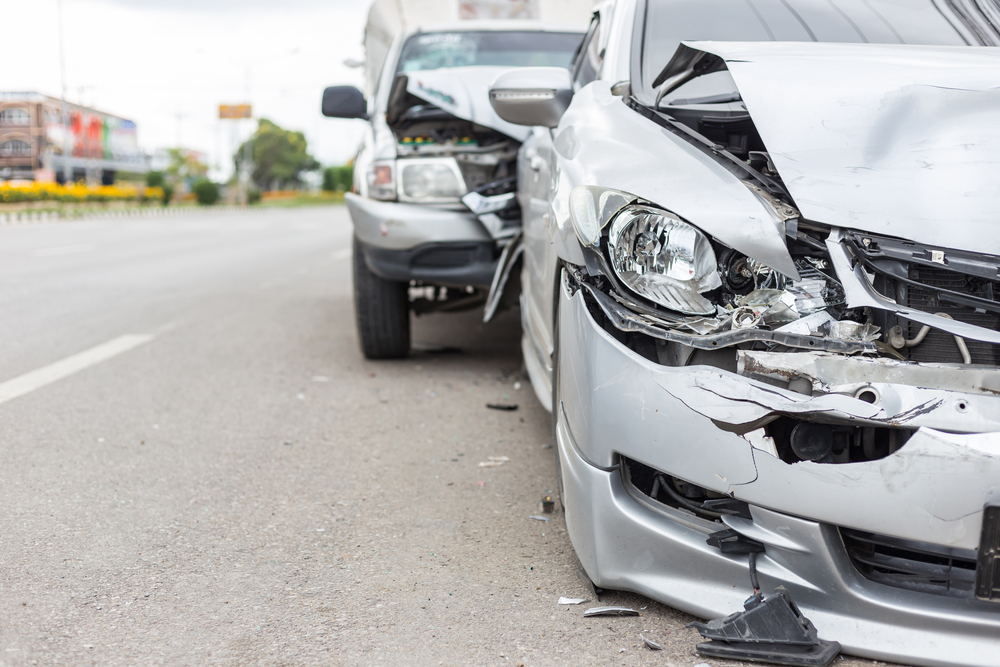Can Degenerative Disc Disease Be Aggravated By A Car Accident?
If you’ve suffered a car accident and now feel more pain in your back or neck, you might ask, “Can a car accident make degenerative
If you’ve suffered a car accident and now feel more pain in your back or neck, you might ask, “Can a car accident make degenerative
Have you ever wondered what your rights are if you experience a slip and fall accident at a big box store like Walmart, Costco, Home
Unlike owning a car outright, a leased vehicle comes with specific considerations in the event of an accident. If you’re not at fault, there are
If you’re in a motor vehicle crash, you may ask yourself, “How do I defend my car accident lawsuit?” Each situation is different, but there
How to obtain a traffic camera video of a car accident in Pennsylvania depends on the applicable rules in the city, state, or county. Additionally,
Many victims have questions about the slip and fall settlement timeline and what to expect during negotiations. These claims first involve gathering evidence and determining

Every attorney on our team has vast experience helping victims of auto accidents, including car accidents and tractor trailer accidents.
Our attorneys will help ensure you receive justice for your auto accident.

If you have experienced a slip and fall somewhere that was not properly marked and received a life altering injury, call our attorneys today.
Injuries like slip and falls can have a lasting impact. Don’t wait.

If you’ve been injured by the negligence of others, you deserve to be compensated and have your rights protected by a personal injury lawyer. Think about how your injury affects your life and the party that is liable for your suffering.
Speak WITH AN ACTUAL ATTORNEY
Get Your Life Back On Track And Talk With One Of Our Experienced Attorneys Today For A Free, No Obligation Legal Consultation.

Yelena Kormov
I had a fantastic experience with this law firm. Their honesty and transparency throughout my personal injury case were truly commendable. They provided clear, straightforward advice and fought diligently on my behalf, and the outcome was beyond my expectations. I highly recommend them for their integrity and exceptional legal skills.
Nina Ricci
Great experience with Kalikhman & Rayz. Needed an attorney for a traffic citation, and the situation was handled professionally and promptly with a breeze. He successfully negotiated the citation down to something better on my behalf, and I am so grateful. Communication has been everything. Would 1000% recommend to anybody in need of a trustworthy attorney.
Bobby Kotick
Fast turnaround, really knowledgeable and helpful team, special thanks to Ekaterina! Easy communication.
Tea Puljevic
They really helped me out! 10 out of 10 experience!
Olga Barmenkova
I would like to say many thanks to KALIKHMAN and RAYZ lawyers and their team. Very professional guys. They work clearly and quickly. I am very pleased that, on the advice of friends, I turned to them. Thanks a lot.
Nell Salim
Multiple times used their services. It’s always good to trust people who handle your sensitive information. Thank you!
Gerta Lovie
The best of the best ! Highly Recommend if you need good quality dedicated lawyers on your side !
Bjorn W
These guys (and girls) really took care of me. I was involved in a bad accident where the other person was responsible. These people really fought for me and didn’t give up even tho it took awhile. Because of them I was able to get the help I needed at a time when I really needed it. Thank you.
Tyhera Johnson
I’ll rate this company 5 stars! They completely settled the case with no hassle or inconvenience. I was completely able to focus on my healing and recovery without any worries. I highly recommend Kalikhman & Rayz!
Jake Erlichman
Amazing experience at Kalikhman & Rayz, super professional and reliable staff. Highly recommend.
© 2025 – Kalikhman & Rayz, LLC – All Rights Reserved | Privacy Policy | Disclaimers